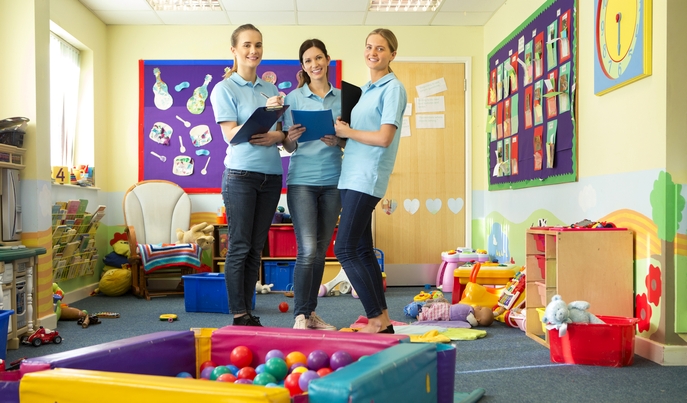What Is Evaluative Practice, And How Can It Help Early Years Professionals?

NDNA's lead early years adviser fills us in on the specifics of evaluative practice – what it is, how to use it, and how you know if you're doing it right…

- by Jo Baranek

What is evaluative practice, and how does it differ from reflective practice? Evaluative practice is about stepping back from what you’re doing and taking a global view, looking at your business with a critical eye. It involves taking stock of your current performance, assessing how it compares with where you want to be and then taking action to reduce the gap.
Reflective practice is about looking at where you are, but evaluative practice is using your reflective practice and analysing it in order to improve and achieve specific goals. It is key to maintaining or improving your inspection results.
What are the main benefits of evaluative practice, and why is it necessary? Outstanding nurseries remain outstanding because they strive constantly for improvement. Knowing where you are now and where you want to be gives you a focus as a business and impresses your potential parents. It’s also crucial for your inspectors to see that you are working in this way and have a firm focus on future improvements. For example, if you want to focus on reducing absence issues, your first step would be to assess current absence, including any patterns that might appear, giving you a benchmark to work from. Having a specific target (e.g. X% reduction in absence within 12 months) creates a clear view of where you want to be. It’s vital to keep on top of the regulations, best practice and to know about the latest technology – particularly IT, in relation to children’s early learning.
Isn’t it dangerous or difficult flagging up our weaknesses? And won’t it cost practitioners money? No setting is perfect, and no staff member is either. It’s important to be aware of what’s going on and where you can make improvements. It may be you uncover a training need. An inspector will appreciate this level of scrutiny and honesty, which is necessary for improving and developing. As for the question of money, not necessarily. Improvements made to aspects such as partnerships with parents may not cost anything (e.g. capturing their email addresses, or inviting them to join a Facebook group). It may be that you already have the necessary resources in your nursery, but aren’t using them in the right way or in the best place. Improve within your means.
Who needs to be involved? Evaluative practice is a collaborative effort between the staff team, parents and children, so encourage everyone to get involved. What do your children like and not like so much? Include other stakeholders such as health visitors, speech therapists, local authority visitors and inspectors, too, so that you can get a comprehensive view of your practice from different perspectives.
When should we do this? Evaluating your practice can’t be a one-off strategy to impress a potential inspector. It should be a continuous process of evaluating and making the improvements as they are needed. Try to sit down at least once a month to focus on all your plans. Make your targets SMART (Specific, Measurable, Attainable, Relevant and Timely). Plan forward and keep moving. I would recommend bringing up evaluative practice at every staff meeting. You may already be doing peer observations, and so are already evaluating what your colleagues are doing. Another good idea is to ask staff to think of two things they can improve upon and two things they already do well. This helps them to reflect on themselves in a focused, specific way, providing a good starting point for planning improvements.
Who should do an evaluative practice course? Somebody needs to lead on any project, often a manager or room leader. They will give it direction and look at the overall picture, but they can’t work in isolation in their office. I would suggest everyone at Level 3 or higher takes part in a course, and possibly all your staff, although some may need supervision or support. NDNA’s new evaluative practice and impact measurement course is designed to support settings in evaluating their practice, using simple models and tools. It also covers impact measurement, which is vital in being able to see exactly how improvements have affected outcomes for the children.
What aspects of nurseries can this help improve? Evaluative practice can apply to any and every aspect of your setting, but it is particularly useful in looking to develop a specific area in the nursery, such as the outdoor space. You could also look at a specific topic or idea, such as embedding maths or literacy better into your setting, or work on improving your partnership with parents.
Jo Baranek is lead early years adviser at the National Day Nurseries Association
Further information about NDNA’s training courses can be found at ndna.org.uk/training







